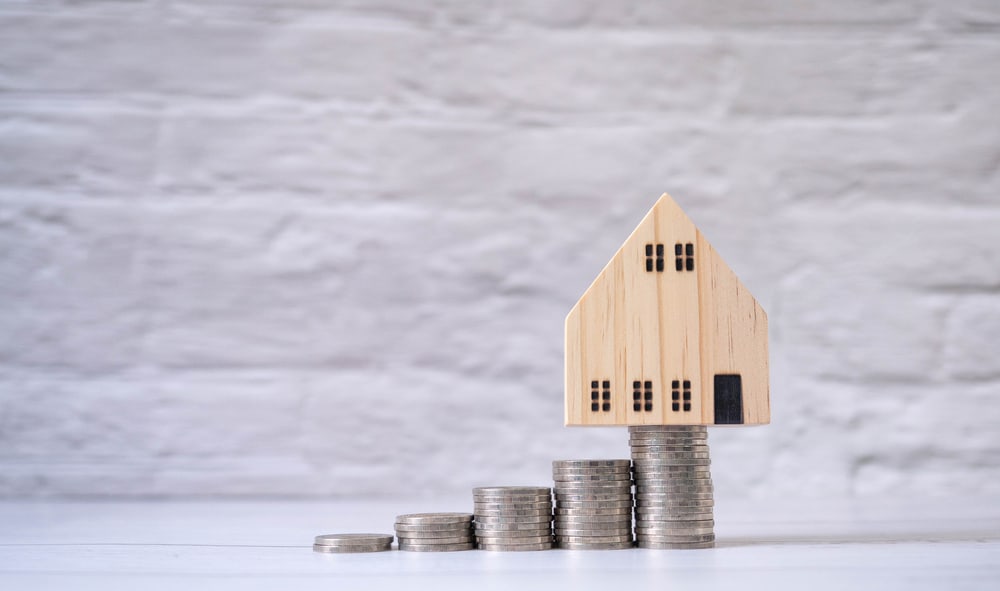UK average house prices increased by 10% over the year to November 2021, up from 9.8% in October 2021, according to the Office for National Statistics' (ONS) UK House Price Index.
Average UK house price were £271,000 in November 2021, £25,000 higher than this time last year.
Prices increased over the year in England to £288,000 (9.8%), in Wales to £200,000 (12.1%), in Scotland to £183,000 (11.4%) and in Northern Ireland to £159,000 (10.7%).
London continued to be the region with the lowest annual growth at 5.1%.
Kevin Roberts, director at Legal & General Mortgage Club, said: “The end of the stamp duty holiday clearly hasn’t done much to dampen demand in the housing market.
"Buyers are still being influenced by mortgage rates that remain low, but also the ongoing impact of the COVID-19 crisis.
"Many are continuing to take the opportunity to move, whether it’s to find larger properties, or those with home office space or a garden.
“Despite high levels of demand and little change in the housing supply, predicting the trajectory of the housing market in 2022 is not a simple task.
"Growing inflation and potential further base rate rises in the near future, mean the landscape is looking increasingly complex.
"Many borrowers could benefit from speaking to an adviser, who will be able to help them navigate the year ahead.
"Doing so could help them find a new deal on their mortgage, particularly if their fixed rate is due to end soon and ensure their mortgage repayments remain fixed for the near future.”
Nick Leeming, chairman at Jackson-Stops, added: “Last year proved to be an astonishing year for the property market, with prices and demand defying expectations set by the pandemic in January.
"Whilst today we see average house prices up slightly from those recorded in October, the figures still reflect lack of supply in the market and are therefore impacting levels of demand in the year to November 2021.
"It is evident that this imbalance between stock and demand will continue to underpin housing activity in coming months and this is reflected by what we are seeing across our branches where the complex and ongoing changes to the nation’s working patterns and lifestyle aspirations have only heightened the importance Britons place on owning a home.
"Heading in to 2022, the countryside renaissance shows no sign of abating but could be tempered with wider concerns about the rising cost of living and the cooling effect of higher interest rates.
"Whilst the housing market is seeing some sellers delay listing their property until they feel confident that they can find their suitable next step across the nation, we are seeing many vendors committed to finding the right home and great houses to move to.
"As such, listing now puts vendors in the best possible position to capitalise on a buoyant market and we'd hope to see the level of stock in the market improve in the coming months."
Andrew Montlake, managing director of
Coreco, said: "2021 ended on a ridiculous high after a surreal year and a half of house price growth. The seasonal slowdown simply didn't take place.
"While 2022 will not see the dramatic house price growth of last year, with inflation likely to impact demand, values are unlikely to fall as mortgage rates rates remain so low and the 'race for space' is as competitive as ever. Prices are also being propped up by a chronic lack of supply."
Stuart Law, chief executive of the Assetz group, said:"Today's data shows yet another month of rising house prices as people adapt their living situations to the realities of a world shaped by trends like remote working and the desire to find more space.
"While strong demand supports pricing and allows housebuilders to recoup inflated build costs caused by materials and labour shortages, high land prices and a cumbersome planning process, the level of price growth we’re seeing is fundamentally unsustainable.
“While low interest rates will continue to support market activity despite sky-high pricing, we are already starting to see lower income buyers, who are most impacted by the cost of living crisis, being priced out of the market.




